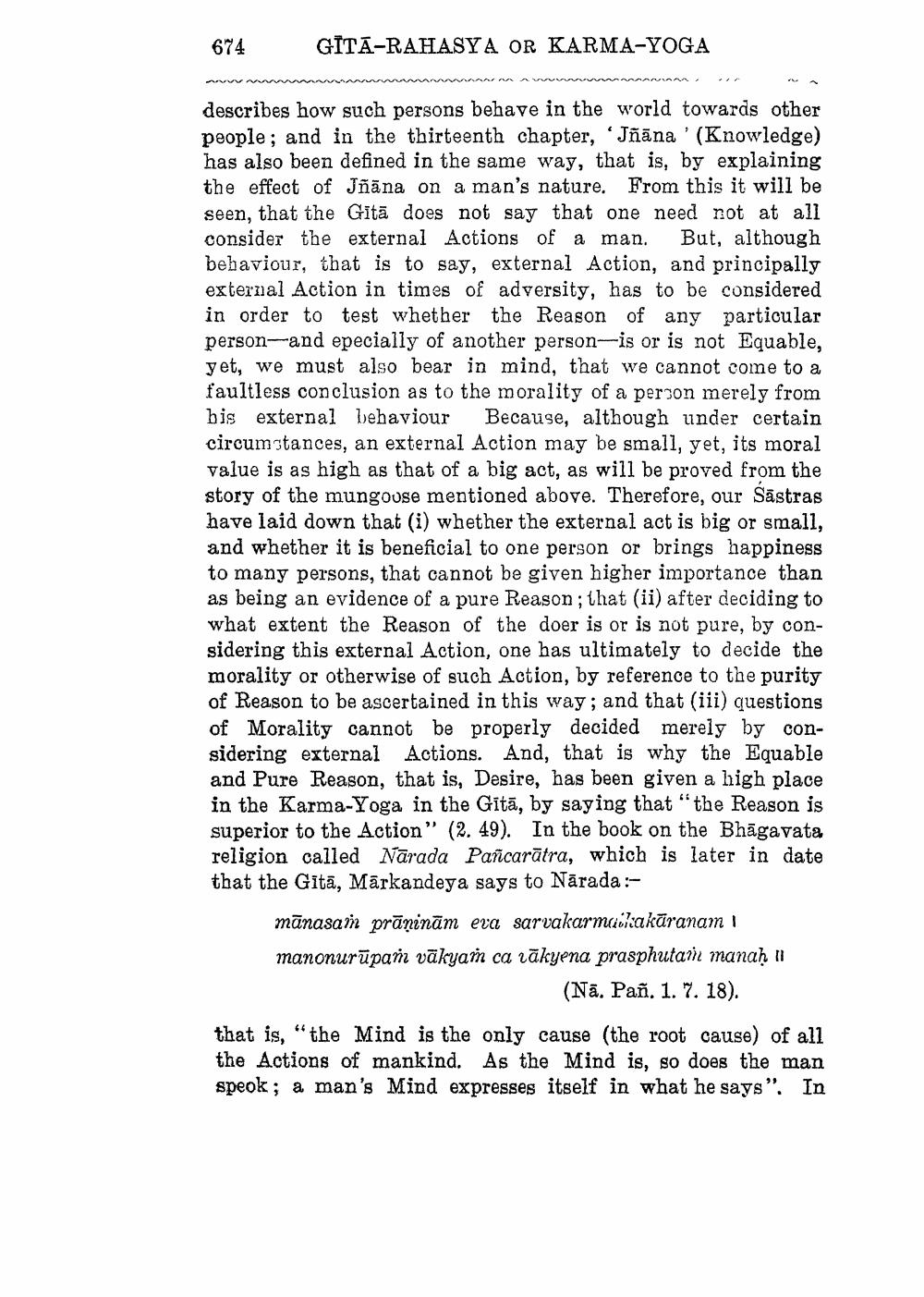________________
674
GITĀ-RAHASYA OR KARMA-YOGA
v
innunnnA wow describes how such persons behave in the world towards other people, and in the thirteenth chapter, ‘Jñāna '(Knowledge) has also been defined in the same way, that is, by explaining the effect of Jñāna on a man's nature. From this it will be seen, that the Gītā does not say that one need not at all consider the external Actions of a man. But, although bebaviour, that is to say, external Action, and principally external Action in times of adversity, has to be considered in order to test whether the Reason of any particular person--and epecially of another person-is or is not Equable, yet, we must also bear in mind, that we cannot come to a faultless conclusion as to the morality of a person merely from bis external behaviour Because, although under certain circumstances, an external Action may be small, yet, its moral value is as high as that of a big act, as will be proved from the story of the mungouse mentioned above. Therefore, our Sāstras have laid down that (i) whether the external act is big or small, and whether it is beneficial to one person or brings happiness to many persons, that cannot be given higher importance than as being an evidence of a pure Reason; that (ii) after deciding to what extent the Reason of the doer is or is not pure, by considering this external Action, one has ultimately to decide the morality or otherwise of such Action, by reference to the purity of Reason to be ascertained in this way; and that (iii) questions of Morality cannot be properly decided merely by considering external Actions. And, that is why the Equable and Pure Reason, that is, Desire, has been given a high place in the Karma-Yoga in the Gītā, by saying that "the Reason is superior to the Action" (2. 49). In the book on the Bhāgavata religion called Nārada Pañcarātra, which is later in date that the Gītā, Mārkandeya says to Nārada:
mānasam prāninām eva sarvakarmakakaranam ! manonurüpan väkyam ca rūkyena prasphutan manah 11
(Nā. Pañ. 1. 7. 18).
that is, “the Mind is the only cause (the root cause) of all the Actions of mankind. As the Mind is, so does the man speok; a man's Mind expresses itself in what he says". In




